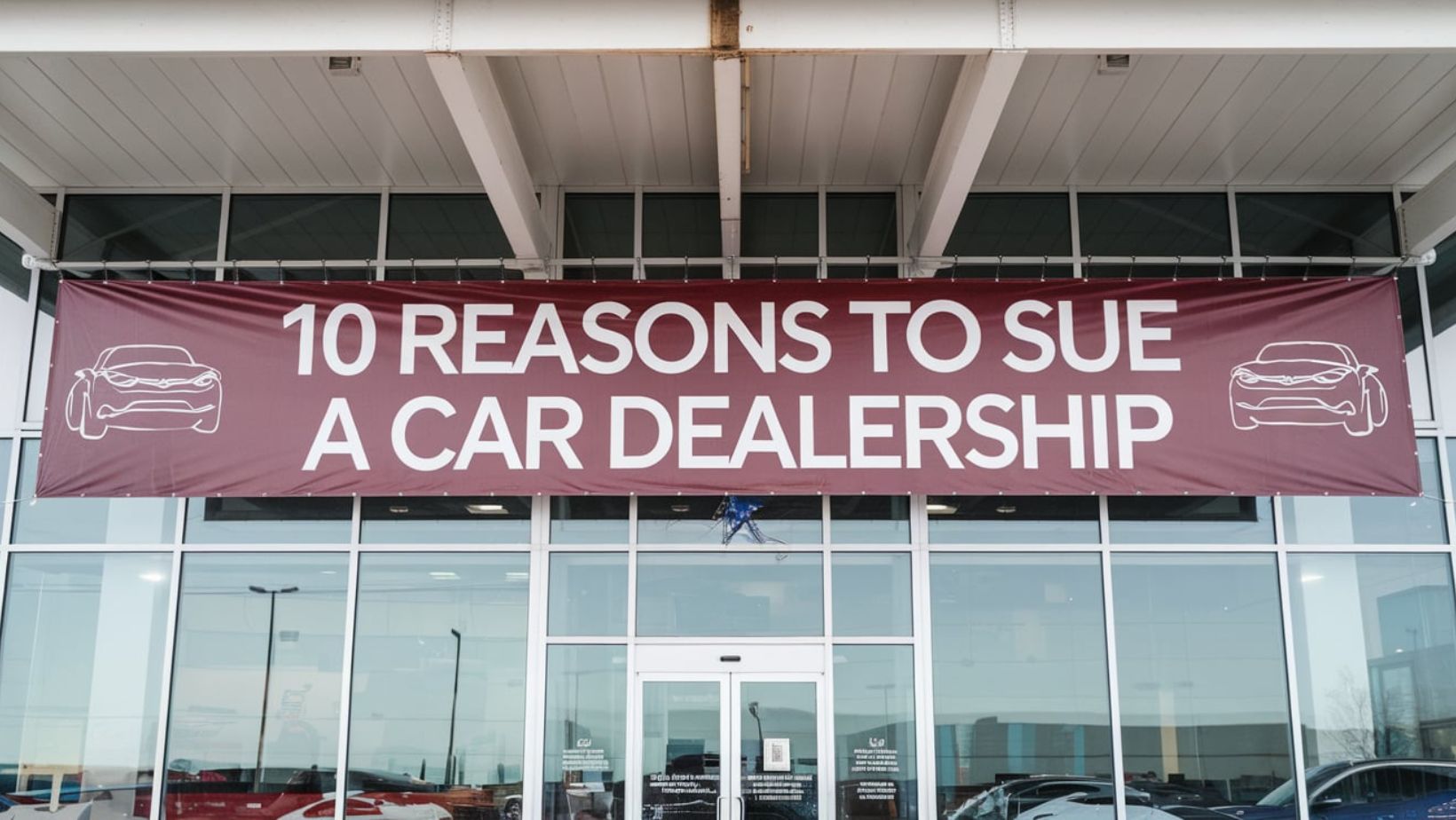While legal action should typically be a last resort, there are situations where pursuing a lawsuit against a car dealership becomes necessary to protect your rights and financial interests. Understanding these legitimate grounds for legal action can help you recognize when you have a valid case and how to proceed appropriately.
1. Fraudulent misrepresentation: “They lied about the vehicle’s accident history”
When a dealership intentionally conceals or misrepresents a vehicle’s accident history, it constitutes fraudulent misrepresentation. This includes cases where they claim a car has a clean history when it’s been in significant accidents, or when they fail to disclose major repairs. Legal precedents have established that dealerships have a duty to disclose known accident history, and failure to do so can result in significant damages being awarded. In many states, this type of fraud can lead to punitive damages beyond the actual cost of the vehicle.
2. Hidden frame damage: “They sold a structurally compromised vehicle as ‘certified pre-owned'”
Selling a vehicle with undisclosed frame damage is particularly serious, especially when the car is marketed as “certified pre-owned.” Frame damage can compromise a vehicle’s safety and significantly reduce its value. Courts have consistently held dealerships accountable when they fail to disclose structural issues, particularly in certified pre-owned programs that promise comprehensive inspections. Successful lawsuits often result in full refunds plus additional compensation for endangering customer safety.
3. Illegal financing practices: “They manipulated the loan terms after the agreement”
Financial fraud in car sales can take many forms, from payment packing (adding unauthorized charges) to yo-yo financing (changing loan terms after purchase). When dealerships engage in deceptive financing practices, they often violate both state and federal laws, including the Truth in Lending Act. Recent cases have shown that courts take a particularly dim view of dealerships that manipulate interest rates or add hidden fees after an agreement has been reached.
4. Odometer fraud: “They rolled back the mileage to increase the vehicle’s value”
Tampering with an odometer is a federal crime, yet some dealerships still engage in this practice. Modern digital odometers can be manipulated using sophisticated software, making this form of fraud more technical but no less illegal. Courts typically award triple damages in proven odometer fraud cases, meaning victims can recover three times their actual losses. The federal Odometer Act provides strong legal grounds for such lawsuits.
5. Warranty violations: “They refused to honor the warranty despite legitimate claims”
When dealerships fail to honor valid warranty claims or attempt to void warranties without legal grounds, they may be violating both state laws and the Magnuson-Moss Warranty Act. This federal law provides strong consumer protections regarding warranties and can lead to successful lawsuits when dealerships attempt to avoid their warranty obligations. Courts often award not only repair costs but also attorney fees in successful warranty violation cases.
6. Title washing: “They concealed salvage or rebuilt status”
Title washing occurs when dealerships manipulate vehicle titles to hide salvage history or other serious issues. This practice is particularly egregious because it prevents buyers from making informed decisions about vehicle safety and value. Legal precedents have established that dealerships engaging in title washing can be held liable for both actual damages and punitive damages, especially when the practice puts customer safety at risk.
7. Unfair trade practices: “They used high-pressure or deceptive sales tactics”
When dealerships employ unfair or deceptive trade practices, they may violate state consumer protection laws. This includes high-pressure sales tactics, bait-and-switch advertising, or misrepresenting vehicle features. Many states have specific statutes governing auto sales that provide legal grounds for lawsuits when dealerships engage in unfair practices. These laws often include provisions for attorney fees and punitive damages.
8. Contract violations: “They changed the terms of sale after signing”
Contract violations occur when dealerships fail to honor the terms of a sales agreement or attempt to modify terms after the fact. This includes changing prices, adding fees, or altering financing terms without consent. Contract law provides clear grounds for legal action when dealerships breach written agreements, and courts generally take a strict view of unauthorized contract modifications.
9. Lemon law violations: “They knowingly sold a defective vehicle”
State lemon laws provide specific protections against the sale of defective vehicles, particularly new cars with persistent problems. When dealerships knowingly sell vehicles with significant defects or fail to properly repair issues under lemon law provisions, they can face substantial legal consequences. These laws often provide for full refunds plus additional compensation for affected buyers.
10. Documentation fraud: “They forged signatures or altered paperwork”
Documentation fraud encompasses various illegal practices, from forging signatures to altering paperwork after signing. This type of fraud is particularly serious because it often involves multiple legal violations, including federal mail and wire fraud statutes. Courts typically view documentation fraud as grounds for both civil lawsuits and criminal prosecution, often resulting in significant damages being awarded to victims.
Before pursuing legal action against a car dealership, it’s crucial to document all interactions, gather evidence, and consult with a qualified attorney who specializes in automotive law. Many states have specific statutes governing automotive sales and consumer protection, which can strengthen your legal position. Remember that successful lawsuits often require demonstrating not just that the dealership acted improperly, but that their actions caused specific, measurable damages.
